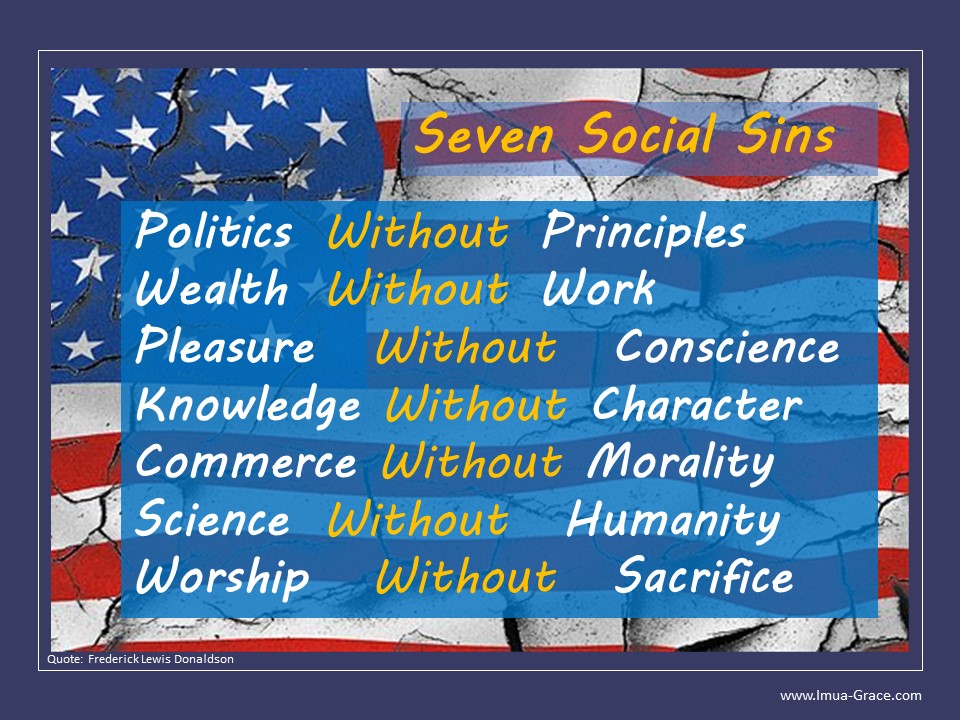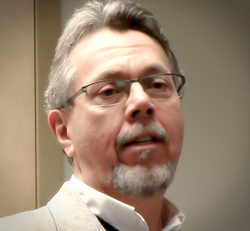Some days I look around and I don’t recognize who we have become as a nation. I don’t understand how some decisions are made and shake my head at the values these decisions reflect. The phrase, “My way is cloudy, Lord, send them angels down” is taken from an old African American Spiritual and was one of the opening songs of the Black Nativity play which ran recently here in Milwaukee. It is also how many feel about America today. The issues and assaults to our values and way of life seem, at times, overwhelming. Some days I look around and I don’t recognize who we have become as a nation. I don’t understand how some decisions are made and shake my head at the values these decisions reflect.
This is my list. I encourage each of you to add your own intention. But I caution you, don’t expect any miracles. Don’t expect God to intercede and bring peace on earth. As a Quaker, I don’t believe in prayers that ask God to intervene. I’m more in line with Rabbi Jack Riemer when he wrote, We Cannot Pray to You” in which he said: “We pray…for strength, determination, and willpower, to do instead of just to pray, to become instead of merely to wish.” Pray for strength – as you work for social justice. Pray for wisdom – as you choose your elected officials. Pray for guidance – as you decide whether to run for office. Pray for determination – as you hold your elected officials accountable. You see, I believe that we have all that we need to succeed on any of these concerns. The way may be cloudy, but this we know: we are the answers to our own prayers. We are the angels God has sent. And, it looks we have our work cut out for us.
1 Comment
The unfortunate irony is that those in power don’t reflect the values of the rest of us Recently I saw a poster of the Seven Social Sins – a list erroneously attributed to Mahatma Gandhi. As I pondered this list, I was struck with two thoughts: One, that the root of these sins seems to be greed and a sense of entitlement. The second thought was about what a paradox this presents. While these sins seem pervasive in our culture, they don’t reflect the values of anyone I know. They don’t reflect the values we espouse as Americans. They don’t reflect the values taught by any of our religious traditions. And yet, the evidence of these sins repeatedly committed across the country is inescapable. Politics without Principles – Consider the prospect of a president who has lied over 1,600 times in less than one year in office; something that would have been inconceivable just a few short years ago. In fact, within a recent 35-day period the president made an average of nine false claims per day. An obvious example is the Republican tax bill that showers billions of dollars upon the already rich and further burdens the poor and the middle class. They finance this in part by adding $1 Trillion to the federal deficit – a debt our children and grandchildren will have to pay. It doesn’t seem to matter that this effort is wildly unpopular. Given the unpopularity of the bill and the uneven consequences of the results, why would the Republicans work so hard at this? The reason can be summed up in one word: re-election. They are focused on passing this ugly and unpopular bill in order to appease their political donors. Wealth without Work – Consider the evolution of hedge fund managers who have become unthinkably wealthy by doing nothing more than moving money around. Think also about the growth of gambling and gambling venues in America and how people become overwhelmed with the allure of getting rich quickly through the turn of a card or the throw of the dice. Pleasure without Conscience – The news is awash with cascading numbers of sexual misconduct scandals, with new ones surfacing almost daily. What does it say that one in five women will be raped in their lifetime in the USA and one in four girls will be abused before turning age 18? Knowledge without Character – If you have a smartphone, you carry with you the ability to tap into the knowledge of the world. And yet, having access to that knowledge doesn’t necessarily make us a better people. In fact, while we live in an age of information we have become a society that is balkanized. We have become a country comprised of myopically-informed tribes in a world rich in information. Commerce without Morality – Companies that abuse the environment in order to reap financial gain exemplify the idea of commerce without morality. Take the case of fracking for oil in Texas, which has resulted in a 500% increase in the number of category 3 earthquakes in that region. Would mining companies continue to use fracking to extract resources if they had to pay for the cost of damages due to the earthquakes resulting from their operations? There is often a cost of pollution that is never born by the company making money but is transferred to the taxpayers. This is known as socialized risk and corporatized profits. Science without Humanity – Where is the thought of humanity when creating an automatic firearm with the ability to shoot hundreds of rounds per minute? What about drone warfare that offers us the capability to kill at a distance as if playing a video game? We are now launching about one drone strike per day and have relaxed the requirements to minimize civilian casualties. Worship without Sacrifice – Do our actions reflect our religious beliefs? The percentage of those in Congress who profess to be Christian is greater than in the overall population. And yet, the policies those “Christian” politicians espouse would make Jesus weep. How can we “respect life” of the unborn yet support policies that cut health care which allows that child to grow strong, cut food stamps which allows that child to be nourished, cut affordable housing which allows that child to live in a descent and safe environment? And even more to the point, how do these cuts reflect religious and gospel norms? How do we in one breath increase the country’s deficit in order to reduce taxes for the wealthy and then turn around and talk about cutting Social Security, Medicare and Medicaid because the deficit is too large? Where – in any religious tenet does it espouse the virtue of cutting necessities for the needy to provide additional money to the wealthy? The people in positions of power seem committed to these social sins. It appears that there is no line they are unwilling to cross in their quest for more money and more power. The unfortunate irony is that those in power don’t reflect the values of the rest of us. And if that is true, how did they get there? Or perhaps a better question – why do we allow them to stay? |
AuthorMichael Soika has been a community activist for more than 30 years working on issues of social and economic justice. His work for justice is anchored by his spiritual formation first as a Catholic and now as a Quaker. Archives
June 2018
Categories |



 RSS Feed
RSS Feed